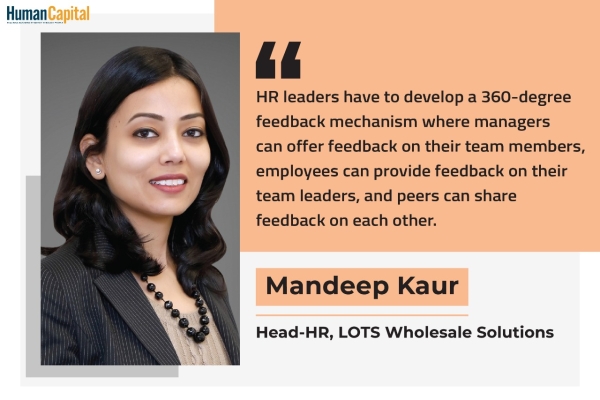With economies having endured numerous tectonic developments, organisations had to take a closer look at their work norms, values and ethics, principles and policies, adversely affecting many a people issue.
I recall the days when I was working with Bharti Telecom way back in 1998-99. The Corporate office was located in a farmhouse opposite the Qutab Minar in Mehrauli in Delhi. Often, we would leave the office late in the evening, and we would find the Qutab Minar flushed in orange light, a beautiful sight to behold, courtesy the Archaeological Survey of India. Looking back, I feel this was a moment of ‘wellness’ of the best kind for us, since we carried this very image back home, and were motivated enough to come back the next day to start afresh. Besides, innumerable employee programmes were floated internally from time to time by the incumbent HR department that created the general aura of employee wellness all around.
Therefore, it is a fact that Employee Wellness was not a new subject to the corporate world back then. However, probably in the last 10 years, wellness has been expressed more in terms of motivation and engagement activities – directly as well as indirectly, affecting employee morale and belongingness within a company. Certain retention programmes were also aimed at uplifting the spirits of the people at the workplace, making them to feel valued. Together, engagement and retention programmes acted as adhesives that stitched up the fabric of the so termed ‘Wellness’ in those early days.
Wellness in the present day
That was then. Corporates have come a long way from those Golden days of employees working at even paces, with performance pressures being just at the right levels, and adequate rewards and recognition coming one’s way. Today’s workplace is vastly different - one that is fraught with huge performance pressures, corporate politics, norms of acceptable behaviours, psychological isolation (what with the new Work From Home patterns or Remote Working), insecurity of jobs, lack of work-life balance, and much more. With economies having endured numerous tectonic developments, organisations had to take a closer look at their work norms, values and ethics, principles and policies, adversely affecting many a people issue. Thus, we live in times of great stretch and stress today. An employee getting into the office on a regular morning no longer assures the continuity of his/her employment the next day owing to multiple factors. An employee, despite putting in 365 days of rigorous performance of a reasonable kind, is on most occasions, unable to lay claim to rewards whatsoever. If at all, he/she lands up with single-digit percentages as increment. Expensive MDPs and AMPs are no longer the order of the day, with organisations strictly believing that the impetus for learning is an employee prerogative. There is cut-throat competition for jobs, with the supply of manpower far outnumbering the number of available opportunities. And in all this – the employee suffers a rough turn throughout.
The hour of crisis
This has led to aberrations of different kinds at the workplace. Employee well-being - physical and mental/psychological - is at a crisis point. And this has rung alarm bells across many organisations. As a result – there is currently a renewed focus on ‘Employee Wellness’ all across, this time ‘Wellness’ interpreted more in letter than in spirit. This is further backed by research that tells us that the health status of employees directly influences the work behaviour, attendance, and on-the-job performance in an organisation. Therefore, improving employee well-being does result in a more productive workforce, and hence, 75 percent of high-performing companies today measure employee health status as a key part of their overall risk management strategy. This has also led to the Management believing in and HR executing many active wellness programmes. Besides productivity, other areas which are positively influenced through ‘Wellness’ are employee morale, recruitment and retention of employees, reduced absenteeism, reduced health risks, improved camaraderie amongst workers, better work-life balance, improved mental sustenance and many more.
What are ‘Wellness’ programmes? Simply explained, employees are the most critical and invaluable assets for an organisation. Ensuring their excellent mental and physical health sets employees up to perform well. The health and wellness of the employees usually have a direct effect on the productivity and profits of the company. Most organisations today are aware of this and are therefore prepared to invest reasonably enough on such programmes, dubbed ‘Wellness’. Even if the good effects of such ‘Wellness’ programmes are hard to detect and spot at the first glance, employees who are usually healthy bring a whole range of health benefits to others and to the Organisations that they work for.
Kinds of ‘Wellness’ programmes range from
♦ Provision of healthy Food and Diets (Organic, tasty, Office canteens)
♦ Assistance (Rehab) facilities in-house (for tobacco especially; prescription drugs etc.)
♦ Sleep facility (Nap corners)
♦ Fitness Centres and programs (Yoga; Zumba; Meditation etc.)
♦ Exploring Transit options (Cycling)
♦ Employee Assistance Programs (chat/online Counselling for depression, GAD, Stress, substance abuse etc.)
♦ Wellness challenges and adventures (drinking more water; reimbursements; weight loss; immunity workshops etc.) making every possible effort at creating a heal
♦ Paramedical Services (massage therapy)
♦ Culture curries (Grafitti walls/ boards; reading rooms; art therapy)
♦ Social Volunteering
Walking the extra mile
Organisations today are walking that extra mile in creating healthy working communities for themselves. As stated earlier, workplace wellness programmes are not new and have evolved tremendously over the past few years. We are talking about programmes that go beyond smoking cessation classes and health screenings. Significant examples being :
1. At Accenture, employees are offered Teledoc services, wherein they can ask health related questions to a doctor, 24/7.
2. At Asana, naps are a great offer to employees in one of the resting tooms to rest, rewire and bounce back at work. Daily Yoga programmes and free Gym memberships are on offer as well at this software company. The in-house culinary team serves 3 delicious meals every day, and also boasts of an inhouse nutritionist for employees to refer.
3. At Intuit, the company’s “Fit for Life” programme offers meditation and mindfulness classes as reimbursable expenses as well as incentives for employees engaging in stress-reduction habits, like taking a walk, practising breathing exercises, or listening to calming music.
The list can go on, citing Google, Microsoft, Draper, SAS, Deloitte etc. Many Indian organisations that have also embarked on this conscious journey are Aditya Birla Group, Kirloskar Group, Anand Mahindra Group, Infosys, Wipro etc.
An organisation’s health and prosperity are directly influenced by the health and wellbeing of its employees. In today’s competitive business environment, it is critical that organisations step forward and invest in human capital as a competitive advantage. To contain health care costs, managers should take an active leadership role in measuring the health status and then developing and promoting wellness strategies based on those data. With some amount of creativity and innovative planning, HR professionals can improve employees’ health status, resulting in a healthier, more engaged and more productive workforce. And with that lethal combination of productivity and profits resulting from a long-term vision of creating mentally and physically fit workforce communities, organisations would be in a position to sustain a formidable presence for themselves for years to come.
Follow and connect with us on LinkedIn, Facebook, Instagram, Twitter for latest HR news and insights.

Do you look forward to permanently working from home after the pandemic subsides?
Trending
-
SBI General Insurance Launches Digital Health Campaign
-
CredR Rolls Out 'Life Happens' Leave For Its Employees
-
Meesho Announces 30-Week Gender-Neutral Parental Leave Policy
-
Microsoft Unveils Tech Resilience Curriculum To Foster An Inclusive Future
-
60% Indian Professionals Looking For Job Change Due To COVID: Survey
-
SpringPeople And Siemens Collaborate For Digital Transformation Push
-
86% Professionals Believe Hybrid Work Is Essential For Work Life Balance: Report
-
Almost 1 In Every 3 People's Personal Life Affected Due To Work Stress
-
Meesho Rolls Out Reset And Recharge Policy For Employees
-
80% Of Talent Leaders & Academics Say Pandemic Changed Skill Needs For Youth: Report
-
Hero Electric Rolls Out 'Hero Care' Program For Employees
-
Human Capital In Collaboration With ASSOCHAM Hosts Virtual Conference
-
IKEA India, Tata STRIVE Collaborate To Create Employability And Entrepreneurship Opportunities
-
SAP India, Microsoft Launch Tech Skilling Program for Young Women
-
DXC Technology, NASSCOM Collaborate For Employability Skills Program
-
Lenskart To Hire Over 2000 Employees Across India By 2022
-
Mindtree Launches Learn-and-Earn Program
-
Tata AIA Extends 'Raksha Ka Teeka' To Its Employees
-
Swadesh Behera Is The New CPO Of Titan
-
NetConnect Global Plans To Recruit 5000 Tech Professionals In India
-
Hubhopper Plans To Hire 60% Of Indian Podcasters By 2022
-
Corporate India Needs More Women In Leadership Roles: Report
-
Aon to Invest $30 Million and Create 10,000 Apprenticeships by 2030
-
Tech Mahindra Launches ‘Gift a Career’ Initiative for Upskilling of Youth
-
40% Women Prefer Flexible Working Options in Post-COVID World: Survey
-
3 out of 4 companies believe they can effectively hire employees virtually: Report
-
Vodafone , CGI and NASSCOM Foundation launch digital skills platform
-
Odisha: Bank, postal employees to deliver cash for elderly, differently-abled persons
-
Skill India launches AI-based digital platform for "Skilled Workforce"
-
Hiring activity declines 6.73% in first quarter: Survey
-
70% startups impacted by COVID-19 pandemic
-
Bajaj Allianz Life ropes in Santanu Banerjee as CHRO
-
Over 70 Percent MSMEs look at cutting jobs to sustain businesses
-
93 Per Cent employees stressed about returning to office post-lockdown
-
Johnson & Johnson India announces family benefits for same gender partners
-
Indian firms turning friendly towards working mothers
-
Welspun India names Rajendra Mehta as new CHRO
-
Wipro partners with NASSCOM to launch Future Skills platform



Human Capital is niche media organisation for HR and Corporate. Our aim is to create an outstanding user experience for all our clients, readers, employers and employees through inspiring, industry-leading content pieces in the form of case studies, analysis, expert reports, authored articles and blogs. We cover topics such as talent acquisition, learning and development, diversity and inclusion, leadership, compensation, recruitment and many more.
Subscribe Now











































Comment